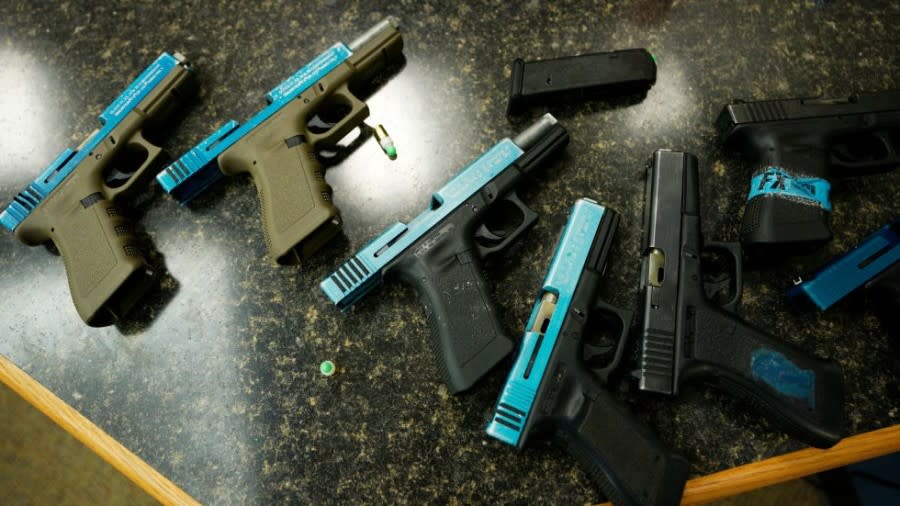NY subway shooting victim sues Glock

A woman wounded in an April subway shooting in Brooklyn filed a lawsuit Tuesday against the manufacturer of the firearm that was allegedly used by the gunman.
Ilene Steur, 49, filed the suit against Glock and its parent company in the Eastern District of New York, alleging that the company’s marketing and distribution practices constituted a “public nuisance” under a new state law that was signed last year.
Steur was one of 10 people wounded by gunfire in a shooting that took place on April 12, when Frank James allegedly tossed smoke bombs into a Sunset Park subway and fired a Glock nine-millimeter handgun at least 33 times during the morning rush hour.
James pleaded not guilty to terrorism and weapons charges and could face up to life in prison if convicted.
The New York law signed last year aims to extend accountability to gun manufacturers by enabling civil public nuisance lawsuits if they fail to implement reasonable safeguards against unlawful distribution or use of their firearms. A group of gun manufacturers — including Glock — challenged the law’s constitutionality in federal court, but a judge dismissed the lawsuit last week.
Steur alleged that Glock “endangered the public health and safety” through marketing that emphasized firearm characteristics that appeal to people with criminal intent and purposely supplying more firearms to induce sales in the secondary market.
“Defendants’ practices knowingly facilitate easy access to their deadly products by people like James,” the lawsuit states.
The Hill has reached out to Glock for comment.
Steur also claimed Glock created public nuisance by not training dealers to avoid illegal transactions and refusing to terminate contracts with distributors who sold to dealers with disproportionately high volumes of firearms traced to crime scenes.
The lawsuit was first reported by the New York Daily News.
Steur’s lawyers asked the court for an unspecified amount of damages and to order Glock to institute policies that “eradicate the effects” of its “unlawful” marketing and distribution practices.
“The defendants’ marketing and distribution policies knowingly created and maintained an unreasonable interference with rights common to the general public, constituting a public nuisance under New York law,” the lawsuit states.
Democratic state legislatures have shown a renewed interest in holding firearms manufacturers liable for gun violence after recent mass shootings. California lawmakers advanced a package after last week’s massacre in Uvalde, Texas, that would allow people to sue manufacturers for certain marketing and design practices.
Families of the victims of the 2012 Sandy Hook Elementary School shooting in Newtown, Conn., reached a landmark $73 million settlement with gunmaker Remington Arms Co. in February.
Congress granted gun manufacturers broad immunity from lawsuits over crimes committed with their products under the Protection of Lawful Commerce in Arms Act, which was passed in 2005. But the law carves out exceptions for things like misconduct or violating state and local laws.
For the latest news, weather, sports, and streaming video, head to The Hill.

